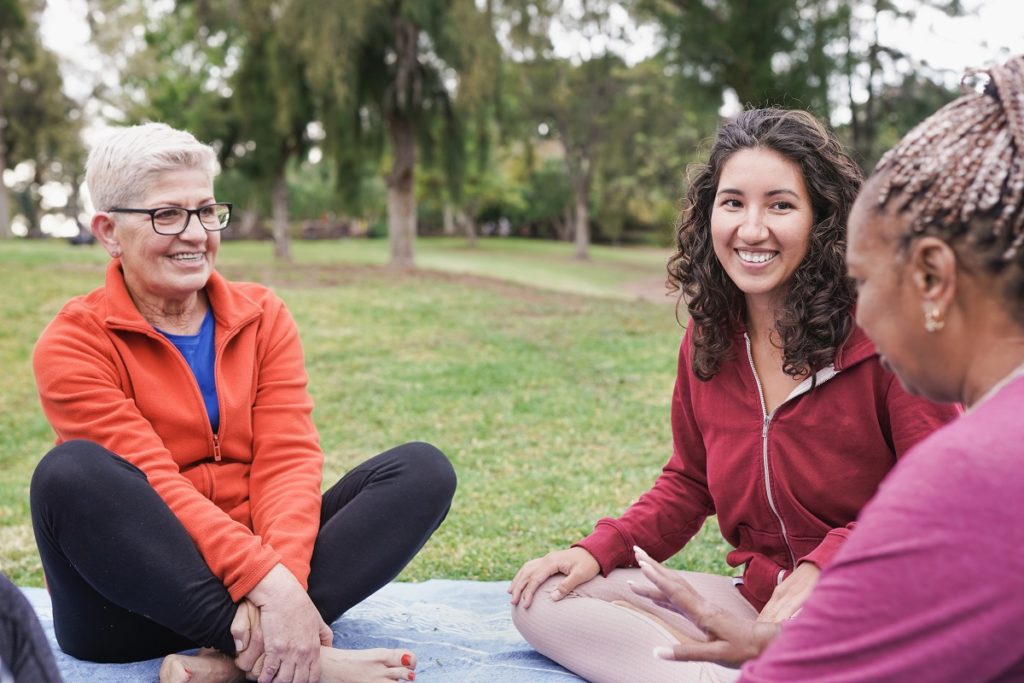By Pat Blumenthal, PsyD, behavioral health

Social well-being refers to how well we attend to our social needs — the needs to belong, to feel connected to others and to care for one another. Our social relationships — family, friends, community — keep us feeling connected to the world, and when we stay connected, we find meaning in our lives.
People with solid social networks also are less apt to suffer from depression and anxiety, more motivated to be physically and mentally active, and more likely to live longer. Decades of studies demonstrate the many benefits of social connections to both the quality and quantity of our years. For example:
- A 2010 review of more than 148 studies, published in Scientific American, found a 50% boost in longevity among people with strong social ties.
- Having more social connections in adolescence is associated with important health benefits that persist from youth to old age, according to a 2016 study in the Proceedings of the National Academy of Sciences. Those benefits include less inflammation in adolescence and less hypertension in old age.
- An ongoing Harvard study following 700 men since 1938 (some of whom are still participating) is finding the more socially connected men to be happier, healthier and living longer than their less-connected peers.
Whether you are in your 30s, your 50s or your 80s, it’s important to cultivate relationships along the way. It may seem to come more naturally for some than for others, but we all have it in us to make the effort, and to benefit from it.
Relationships are built on shared experiences. If your social life could use a boost, find ways to create shared experiences with others, even if they still need to happen virtually or outdoors with masks. Start or join a hiking group, a neighborhood happy hour or a virtual book club. Find an online support group or volunteer for a charity. Take your dog to a dog park and chat with other dog owners. And don’t limit yourself to your own age group — having friends of all ages makes for a richer life and keeps you connected to the past and the future.
Many of us have experienced increased isolation in the past year, due to the pandemic. For those with a disability or change in physical health, isolation may be an even bigger challenge. In these situations, it’s more important than ever to keep reaching out to family and friends.
If you are really struggling, therapy can help you discover what is getting in the way of connecting with others and help you find a path forward. When we work on prioritizing our social needs, many other aspects of our lives improve. Our relationships are a crucial buffer to life’s stressors, helping us to cope with adversity and to stay resilient during difficult times. For a long and healthy life, meaningful relationships are as important as exercise, and a lot more fun.


